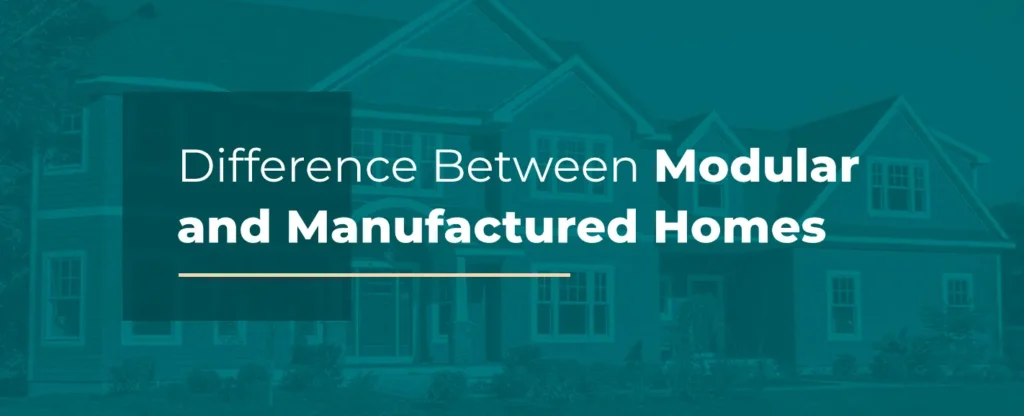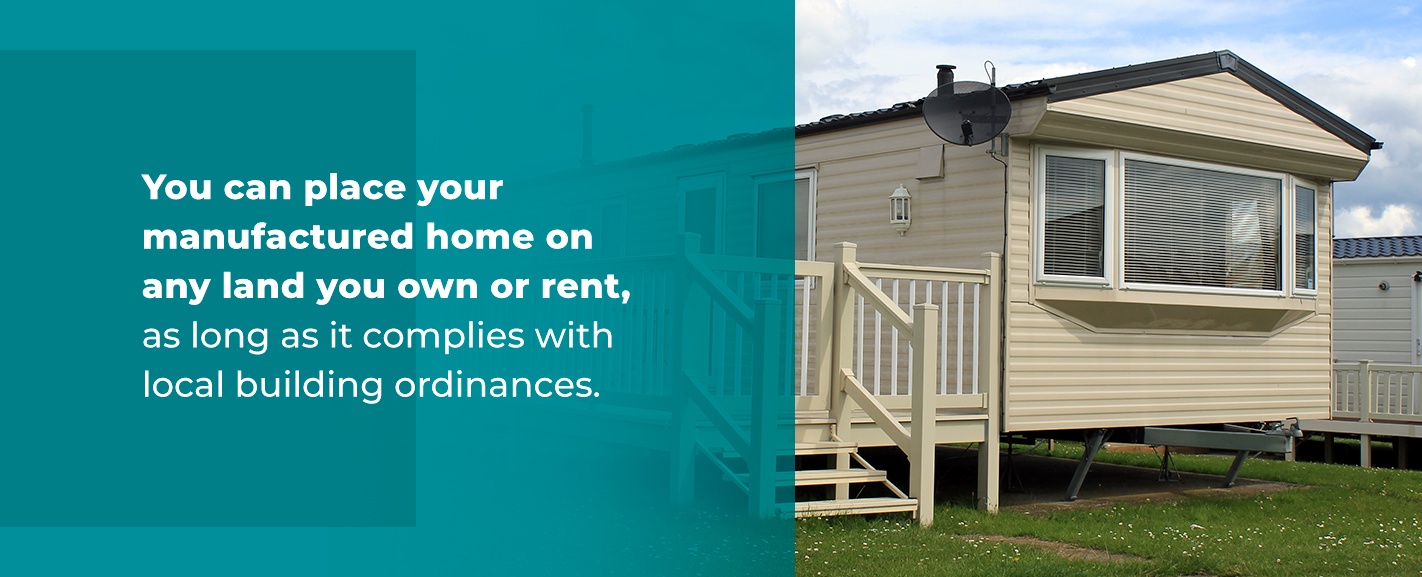
Along with the rising cost of housing, modular and manufactured homes have become more popular. Both modular and manufactured homes are cost alternatives to site-built homes. They offer the same quality year-round comfort and protection a site-built home would. Since manufacturers create them in climate-controlled environments, the building materials are safe from weather damage. The building process can continue even if harsh weather is in the forecast.
While manufactured and modular homes may both seem like cost-effective housing options, which one is a better long-term investment? If you live in Rhode Island, Connecticut or Massachusetts and you’re wondering whether to create a modular or a manufactured home, let us help you make your decision. Then, when you’re ready, you can design your home’s floor plan.
What Is a Modular Home?
A modular home comes together in sections in a climate-controlled factory and is typically about 80 to 90% percent complete before builders construct it on a permanent foundation. After the building process concludes, the home travels to its permanent site on a flatbed truck. After placing the home on its foundation, the construction team puts the finishing touches on the process by hooking up the electricity, water supply and plumbing. A local inspector then ensures the completed home is compliant with local, state and federal building codes.

Modular homes are like site-built homes because they sit atop a permanent foundation. They take less time to manufacture than site-built homes, so you can have a move-in-ready home in a shorter amount of time. Since modular homes fall into the same category as site-built homes, you will have the same financing and legal options as you would with a traditional site-built home.
As you consider modular vs. manufactured homes, modular homes are distinct because they are:
- Customizable to any floor plan design.
- Used to speed up the development of communities like college dormitories for students and training institutions.
- Efficient for areas affected by natural disasters.
- Upgradable as needed, which increases their value over time.
- Built to have the same lifespan as a site-built house.
What Is a Manufactured Home?
In the past, people called manufactured homes mobile homes or trailer homes. Before hotels were popular, trailers gave travelers a place to spend the night. During World War II, these mobile homes served as temporary housing for workers who had to travel to assist the war efforts. After the war, mobile homes provided affordable housing for veterans returning to the United States.
Over time, mobile homeowners started to demand roomier properties. Manufacturers began mass-producing these homes to provide affordable housing for the American public in the mid-1970s. In 1974, the U.S. Department of Housing and Urban Development (HUD) passed the National Manufactured Housing Construction and Safety Standards Act, which created standards for new manufactured homes.
Manufactured homes are usually available in one of three sizes — single-wide, double-wide and triple-wide. They are much larger than mobile homes and are easily customizable to fit your architectural design.
Considering modular vs. double-wide manufactured homes, manufactured homes are distinct because they are:
- Movable.
- Usually less expensive.
- Complete with skirting or siding to hide where the wheels used to be.
- Compliant with the federal HUD building code.
- Limited in placement options.
- Great vacation homes.
- Easily deliverable and constructed.
Like a modular home, a manufactured home comes together in a factory. Instead of traveling on a flatbed truck and getting constructed in a permanent location, a manufactured home gets transported on a steel chassis and a set of wheels. While you may have difficulty customizing your manufactured home, you can usually have it delivered to your desired location in a matter of days.
There are limited financing options available for manufactured homes, since they depreciate over time. Instead of considering them as residential property, financing professionals see manufactured homes as personal property, like a TV or a car.

When the house arrives at your location, the wheels come off and the house remains on the steel chassis. You can place your manufactured home on any land you own or rent, as long as it complies with local building ordinances. Most manufactured homeowners establish their homes in trailer parks and pay to lease the land.
Modular Home vs. Manufactured Home
When choosing whether to buy a modular home or a manufactured home, think about which would be a better long-term investment. The difference between a mobile home and a modular home involves permanence, structure and design. Modular homes sit on a permanent plot of land and must comply with local and state building codes. Mobile homes, on the other hand, can travel to new locations as needed.
Some of the advantages of modular homes include that they:
- Are 15% more energy-efficient than conventional homes.
- Have a higher resale value.
- Are customizable.
- Are more cost-effective, even though they are more expensive.
- Are sturdy and can withstand extreme weather conditions.
- Contain full kitchens, full bathrooms, large bedrooms and basements.
On the other hand, modular homes:
- Are more expensive.
- Are stuck in a fixed location and are more difficult to transport.
Compared to modular homes, manufactured homes:
- Can travel to your location in a matter of days.
- Are quick to construct and install.
- Can move to another location as needed.
- Are more affordable.
While manufactured homes cost less money, here are reasons modular homes offer you more for your money:
- There are limited financing options because of their price depreciation over time.
- Some loans require you to place your manufactured home on a permanent foundation.
- Customizing options are fewer.
- Most people who live in a manufactured home stay in one place.
For an energy-efficient, cost-effective home, you are better off spending your money on a modular home. While you can easily transport a manufactured home when you’re traveling, it’s a smarter choice to invest in a more permanent home that will increase in value over time. When you’re considering a modular home vs. a trailer, a modular home is a better long-term investment because of its energy efficiency and larger square footage.
Build a Modular Home With Design. Build. Modular.
Our team at Design. Build. Modular. will help you create your dream modular home. If you live in Rhode Island, Connecticut or Massachusetts, browse through our floor plans to discover what we have to offer. With turnkey solutions for home construction, we will help you design your dream home from start to finish. Contact us to start the process of building your modular home with us.
